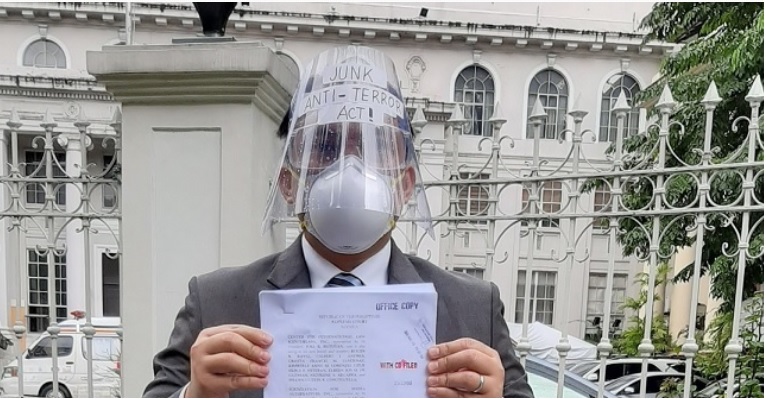
The disclosure of the new Armed Forces Chief of Staff, Lt Gen Gilbert Gapay, about his plan to include the use of social media in the implementation of the Anti-Terror Act (ATA) is a grave warning on the danger of this law.
“Because this is the platform now being used by the terrorists to radicalize, to recruit, and even plan terrorist acts. That’s why we need to have to specific provisions of this in the IRR pertaining to regulating the use of social media,” Gapay was quoted in news reports as having said in a media briefing.
Gapay had to issue a clarification later that what he meant was to “put order on the social media platforms, not the users per se,” when his plan elicited statements of concern from officials, one of them was the author of the ATA himself, Senator Panfilo Lacson.
Lacson said, “I think to say the least, it was an ill-advised statement, we cannot regulate social media. We should allow the Anti-Terrorism Act of 2020 to take its course,” Lacson said in an interview on ABS-CBN News Channel.
Lacson added: “There’s a very strong qualification that the Bill of Rights cannot be violated. So, if we regulate social media or media for that matter, I don’t think the anti-terrorism law would allow that.”
The Anti-Terror Law’s assault on the Bill of Rights is underscored in the petition that CenterLaw together with three organizations and at least 20 individuals are filing Monday before the Supreme Court to have the law declared “unconstitutional”.
(Disclosure: one of petitioners is VERA Files, an organization where I belong. I’m also joining the petition in my individual capacity. Same thing with nine other reporters of VERA Files.)
Our other co-petitioners are Foundation for Media Alternatives (FMA), Inc., Democracy.net.ph,and law professors from the Lyceum of the Philippines, one of them is Romel R. Bagares.
There are more than 25 petitions against the Anti-Terror Law and we will be writing more about it in the coming days and weeks. Here are some of the arguments that we stated in our petition focusing on freedom of speech and free expression:
– Section 4 of the ATA is repugnant to Article III, Section 4 of the Constitution for abridging right to freedom of speech and the right of the people to peaceably assemble and petition the government for redress of grievances.
– The “acts” defined under Section 4 of the ATA are incomprehensible and overbroad. In its common meaning, an act refers to “a thing done” which by logic includes all forms of action. Section 4 in effect punishes all kinds of possible actions that a person can do “regardless of the stage of execution.”
– If Section 4 of the ATA is applied, the mere thought and inception of an idea in a person is criminalized to be already an act of terrorism. Never has intent alone been a level of culpability punishable by penal statutes because our laws have always required overt illegal acts to be the standard when it comes to punishment.
– This statute essentially restricts the ideas of man and woman and his/her freedom to express himself/herself in the form of literature, artwork, and other medium that may be seen as acts of terrorism as defined in Section 4.
– Since Section 4 is so overly broad in defining “terrorism,” this will logically result in the curtailment of the right to freedom of speech and expression when a person doubts his/her actions of collecting, making, and possessing objects or documents that might be seen as connected with terrorist activities. This will silence him/her and his/her right to free speech and expression.
This is already prior restraint.
Section 4 is a clear attack on the right to freedom of speech and other civil and political rights even where it included a proviso which, on first glance, purports to exclude from the definition of “terrorism” the enumerated protected speech, symbolic speech, and other exercises of civil and political rights by stating that “terrorism as defined in this Section shall not include advocacy, protest, dissent, stoppage of work, industrial or mass action, and other similar exercises of civil and political rights.”
“In the hands of an ill-advised, ill-trained, though well-intentioned law enforcement agents, Section 4 is putty that can be formed according to certain desired ends at cross-purposes with the Constitution,” CenterLaw’s Gilbert T.Andres said.
The statement of AFP Chief Gapay to regulate social media adds to this fear.
We are asking the Supreme Court to issue a TRO to prohibit law enforcement agencies such as the Philippine National Police (PNP), Armed Forces of the Philippines (AFP) and the National Bureau of Investigations (NBI) from implementing the Anti-Terrorism Act, which took effect on July 21, or 15 days after its July 6 publication in the Official Gazette.
Be First to Comment